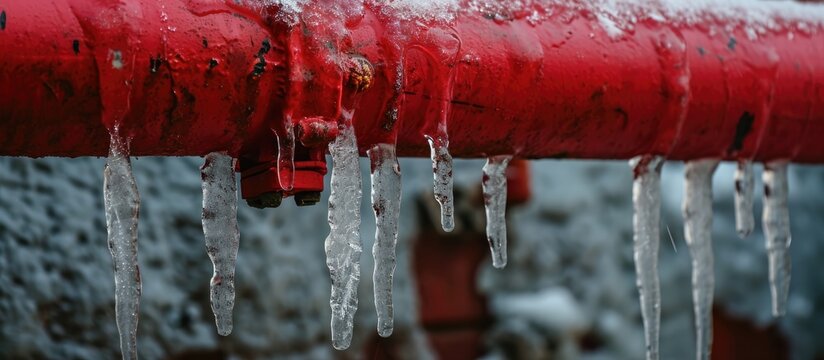Safeguarding Your Pipes from Freezing Issues: Key Tips
Safeguarding Your Pipes from Freezing Issues: Key Tips
Blog Article
Nearly everybody will have his or her own ideas when it comes to How to prepare your home plumbing for winter weather.

Cold weather can damage your plumbing, especially by freezing pipes. Here's just how to stop it from taking place and what to do if it does.
Introduction
As temperatures decline, the threat of frozen pipes boosts, possibly resulting in costly repair services and water damages. Understanding how to stop icy pipes is crucial for homeowners in cool climates.
Recognizing Frozen Pipes
What creates pipes to ice up?
Pipes freeze when subjected to temperature levels listed below 32 ° F (0 ° C) for extended periods. As water inside the pipes freezes, it expands, putting pressure on the pipeline wall surfaces and possibly causing them to burst.
Risks and damages
Icy pipelines can lead to supply of water interruptions, property damage, and costly repair work. Burst pipelines can flood homes and cause extensive architectural damages.
Indicators of Frozen Piping
Recognizing frozen pipes early can prevent them from rupturing.
Just how to recognize frozen pipelines
Seek lowered water circulation from taps, uncommon odors or noises from pipelines, and noticeable frost on exposed pipelines.
Prevention Tips
Protecting prone pipelines
Cover pipes in insulation sleeves or use heat tape to safeguard them from freezing temperatures. Focus on pipes in unheated or exterior areas of the home.
Home heating strategies
Maintain indoor areas properly warmed, especially locations with plumbing. Open closet doors to enable cozy air to distribute around pipelines under sinks.
Safeguarding Outdoor Pipes
Yard tubes and outside faucets
Detach and drain pipes garden tubes before winter. Set up frost-proof spigots or cover exterior faucets with shielded caps.
What to Do If Your Pipes Freeze
Immediate activities to take
If you think icy pipes, maintain faucets available to soothe pressure as the ice thaws. Use a hairdryer or towels soaked in warm water to thaw pipes slowly.
Long-Term Solutions
Architectural changes
Consider rerouting pipes away from outside wall surfaces or unheated locations. Include added insulation to attic rooms, cellars, and crawl spaces.
Updating insulation
Buy high-quality insulation for pipes, attic rooms, and wall surfaces. Correct insulation aids maintain regular temperature levels and lowers the threat of icy pipes.
Conclusion
Preventing frozen pipelines needs positive measures and fast responses. By recognizing the reasons, signs, and safety nets, house owners can safeguard their plumbing throughout cold weather.
Helpful Tips to Prevent Frozen Pipes this Winter
UNDERSTANDING THE BASICS: WHY PIPES FREEZE AND WHY IT’S A PROBLEM
Water freezing inside pipes is common during the winter months, but understanding why pipes freeze, and the potential problems it can cause is crucial in preventing such incidents. This section will delve into the basics of why pipes freeze and the associated problems that may arise.
THE SCIENCE BEHIND FROZEN PIPES
When water reaches freezing temperatures, it undergoes a physical transformation and solidifies into ice. This expansion of water as it freezes is the primary reason pipes can burst. As the water inside the pipe freezes, it expands, creating immense pressure on the walls. If the pressure becomes too great, the pipe can crack or rupture, leading to leaks and water damage.
FACTORS THAT CONTRIBUTE TO PIPE FREEZING
Low Temperatures: Extremely cold weather, especially below freezing, increases the risk of pipes freezing. Uninsulated or Poorly Insulated Pipes: Pipes located in unheated areas, such as basements, crawl spaces, or attics, are more prone to freezing. Insufficient insulation or lack of insulation altogether exacerbates the problem. Exterior Wall Exposure: Pipes running along exterior walls are susceptible to freezing as they encounter colder temperatures outside. Lack of Heating or Temperature Regulation: Inadequate heating or inconsistent temperature control in your home can contribute to frozen pipes. PROBLEMS CAUSED BY FROZEN PIPES
- Pipe Bursting: As mentioned earlier, the expansion of water as it freezes can cause pipes to burst, resulting in significant water damage.
- Water Damage: When pipes burst, it can lead to flooding and water damage to your property, including walls, ceilings, flooring, and personal belongings.
- Structural Damage: Prolonged exposure to water from burst pipes can compromise the structural integrity of your home, leading to costly repairs.
- Mold and Mildew Growth: Excess moisture from water damage can create a favorable environment for mold and mildew growth, posing health risks to occupants.
- Disrupted Water Supply: Frozen pipes can also result in a complete or partial loss of water supply until the issue is resolved.
WHY CERTAIN PIPES ARE MORE PRONE TO FREEZING
- Location: Pipes located in unheated or poorly insulated areas, such as basements, crawl spaces, attics, or exterior walls, are at higher risk of freezing.
- Exterior Pipes: Outdoor pipes, such as those used for irrigation or exposed plumbing, are particularly vulnerable to freezing as they are directly exposed to the elements.
- Supply Lines: Pipes that carry water from the main water supply into your home, including the main water line, are critical to protect as freezing in these lines can affect your entire plumbing system.
- Underground Pipes: Pipes buried underground, such as those connected to sprinkler systems or outdoor faucets, can be susceptible to freezing if not properly insulated.
https://busybusy.com/blog/helpful-tips-to-prevent-frozen-pipes-this-winter/

I hope you liked our post on Helpful Tips to Prevent Frozen Pipes this Winter. Thanks a ton for spending some time to read through our content. Sharing is good. Helping others is fun. We appreciate reading our article about Winter Plumbing Precautions: Preventing Frozen Pipes.
Browse Website Report this page